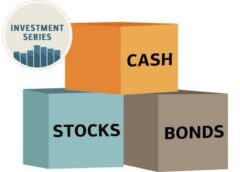
Understanding the three pillars of wealth is essential for building a solid financial foundation. Here’s a detailed look at each pillar:
1. Liquid Assets (Cash/Balance)
Definition:
- Liquid assets are cash or assets that can quickly be converted to cash with minimal loss in value. These include savings accounts, money market accounts, and short-term government bonds.
Importance:
- Emergency Fund: Liquid assets provide a safety net in case of emergencies, ensuring that you can cover unexpected expenses without needing to sell long-term investments at a loss.
- Flexibility: Having liquid assets allows you to seize investment opportunities that may require immediate capital.
- Peace of Mind: Knowing you have readily available funds can reduce financial stress and provide peace of mind.
Strategies:
- Maintain an Emergency Fund: Aim to have 3-6 months of living expenses in an easily accessible account.
- Optimize Yield: Use high-yield savings accounts or money market accounts to earn interest on your liquid assets without sacrificing accessibility.
2. Investment Holdings (Stocks, Bonds, Crypto)
Definition:
- Investment holdings refer to the portfolio of assets like stocks, bonds, mutual funds, ETFs, and cryptocurrencies. These assets are typically held for long-term growth and income.
Importance:
- Growth Potential: Investments in stocks and cryptocurrencies offer the potential for significant capital appreciation.
- Income Generation: Bonds and dividend-paying stocks provide a steady income stream through interest and dividends.
- Diversification: A diversified investment portfolio helps manage risk by spreading investments across different asset classes.
Strategies:
- Diversify: Spread your investments across various asset classes to minimize risk.
- Invest Regularly: Use dollar-cost averaging to invest a fixed amount regularly, reducing the impact of market volatility.
- Stay Informed: Keep up with market trends and economic indicators to make informed investment decisions.
3. Income-Generating Properties (Real Estate, Businesses)
Definition:
- This pillar includes physical properties like rental real estate and businesses that generate consistent income. This can also encompass other income-producing assets like royalties and intellectual property.
Importance:
- Stable Income: Rental properties and businesses provide a reliable income stream, often independent of market fluctuations.
- Appreciation: Real estate tends to appreciate over time, providing both income and capital growth.
- Tax Benefits: Many income-generating properties come with tax advantages, such as depreciation deductions for real estate.
Strategies:
- Invest in Rental Properties: Look for properties in high-demand areas to ensure consistent rental income.
- Build and Scale Businesses: Focus on businesses with scalable models that can grow and generate increasing revenue.
- Leverage Expertise: Utilize professionals like property managers or business consultants to maximize the efficiency and profitability of your assets.
By balancing these three pillars—maintaining sufficient liquid assets for emergencies and opportunities, building a diversified investment portfolio for growth and income, and owning income-generating properties for stability and appreciation—you can create a robust financial foundation capable of weathering economic uncertainties and capitalizing on opportunities for wealth growth




